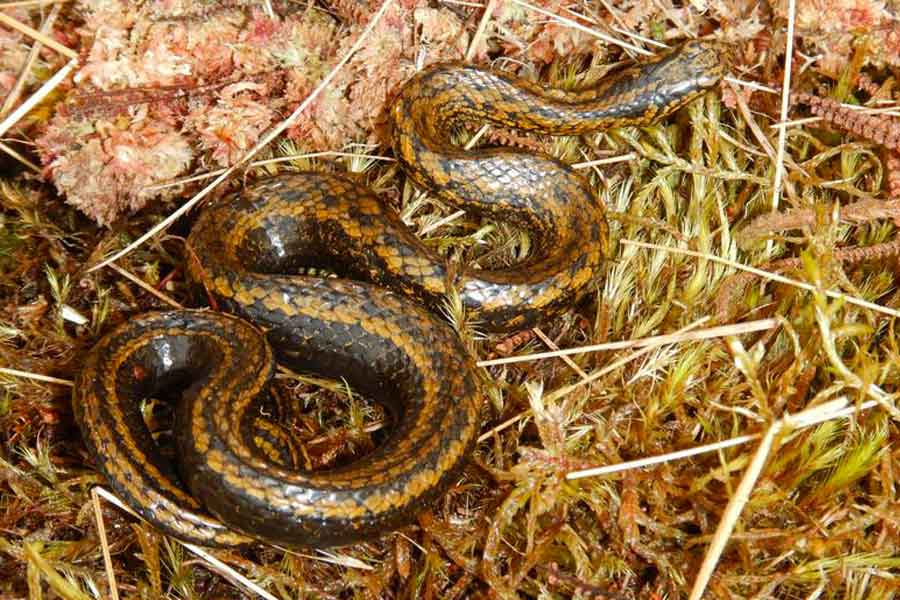Researchers from Germany, the United States and Peru have named a recently discovered species of snake after actor Harrison Ford.
Ford famously played Indiana Jones, who himself had some perilous encounters with snakes.
And on Tuesday the German Society for Herpetology and Herpetoculture (DGHT) announced the naming of Tachymenoides harrisonfordi to recognize the Hollywood actor's environmental advocacy.
Ford's namesake snake measures 16 inches (40.6 centimeters) in length and is yellowish-brown with scattered black blotches, a black belly, and a vertical streak over its copper-colored eye.
Ford says experience is 'humbling'
"These scientists keep naming critters after me, but it's always the ones that terrify children," Ford said jokingly in a statement.
"I don't understand. I spend my free time cross-stitching. I sing lullabies to my basil plants, so they won't fear the night."
The 81-year-old actor went on to thank researchers for the honor and note the significance of the discovery.
"In all seriousness, this discovery is humbling. It's a reminder that there's still so much to learn about our wild world — and that humans are one small part of an impossibly vast biosphere," he said.
"On this planet, all fates are intertwined, and right now, one million species are teetering on the edge of oblivion. We have an existential mandate to mend our broken relationship with nature and protect the places that sustain life."
The snake was discovered in May 2022 by a team of researchers from the United States, Germany and Peru.
The only specimen, a male, was discovered sunbathing in a marsh in the Peruvian Andes located some 3,248 meters above sea level.











